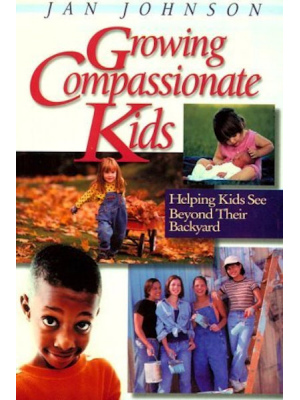No Justice without Love
Let’s say a person has been hurt. How do we treat the one who did the hurting? Some would say justice—they get what they deserve. Others would say mercy—consider the circumstances, given them a break. It’s generally either/or.

Here’s a story to consider: I know of a young man who was found guilty on a drug charge. Let’s call him Todd. Todd was 19 and was headed for prison. For reasons unknown to me, the judge made him the following offer. The judge had a friend who ran a fishing business in the Aleutian islands off Alaska. In certain seasons, he and his workers spent most of their days and nights in the cold waters fishing. They became exhausted. The friend was now down one worker. So the judge said something like this to Todd: “You can go to jail for X years or you can work for my friend for X years.”

Todd took the fishing job. He liked the adventure and stayed on after his time was up. Todd eventually married the boss’s daughter and now owns the company.
How does this fit with cultural definitions of justice and mercy (or love)? It doesn’t. It isn’t either/or. It’s both/and. Why? They are the same thing.
The biblical idea of agape love is willing the good of another, wanting what is best for another person. If someone is beating up my friend, I will intervene not only out of love for my friend and to see justice done but also out of love for the perpetrator. It’s not good for the perpetrator’s character, body, or reputation to be beating people up. I am showing both love and justice to both. Says Dallas Willard, there is a natural connection between justice and love. Justice without love will always fall short of what needs to be done. It is never as good as it should be. Justice without love will never do justice to justice, nor will “love” without justice ever do justice to love. Indeed, it will not be love at all; for love wills the good of what is loved, and that must include justice where justice is lacking. … That is certainly the view of Jesus and the New Testament, and on that view love is everything. (Knowing Christ Today p. 83).
Understanding this full-bodied view of love and justice becomes so important when we find ourselves demanding the culture’s view of justice (condemnatory punishment) or the culture’s view of love (codependent leniency). It works better to ask Jesus, How do I love my neighbor well? How do I will that person’s good—in prayer, words, action?
![]()
I’m thinking a lot about loving my neighbor well because of the friction I see in our culture just now. Taking sides has become more important than loving the person in front of me (neighbor). It’s also on my mind because loving our neighbor well is the theme of the 4th residency of School of Kingdom Living, an 18-month immersion in Dallas Willard’s teaching on “putting on the character of Christ” through empowering content, experiential exercises, and community engagement so crucial for inward transformation. Can’t resist mentioning that if you’re interested, we’re taking applications for the 2nd cohort!
Grace and peace,
Jan
 New on https://JanJohnson.org : Learning to Listen: Exploring the What, Why and How of Spiritual Direction (Renovare webinar)
New on https://JanJohnson.org : Learning to Listen: Exploring the What, Why and How of Spiritual Direction (Renovare webinar)
Interview about Growing Compassionate Kids wtih KidzatHeartInternational